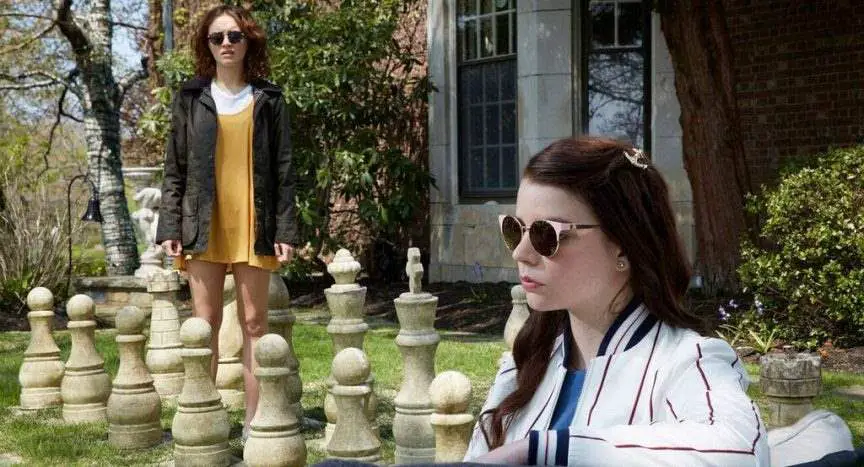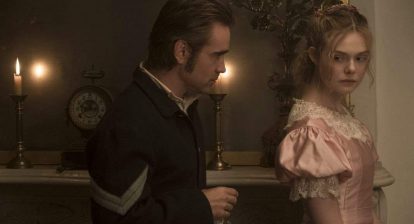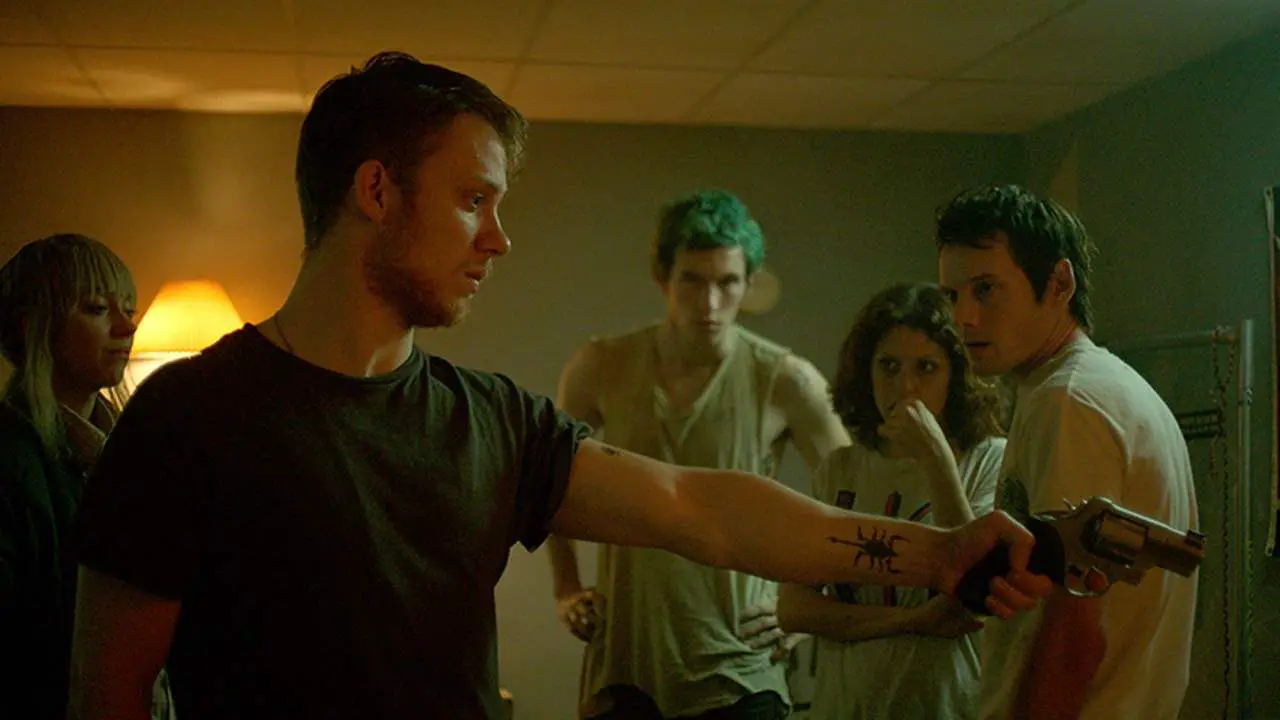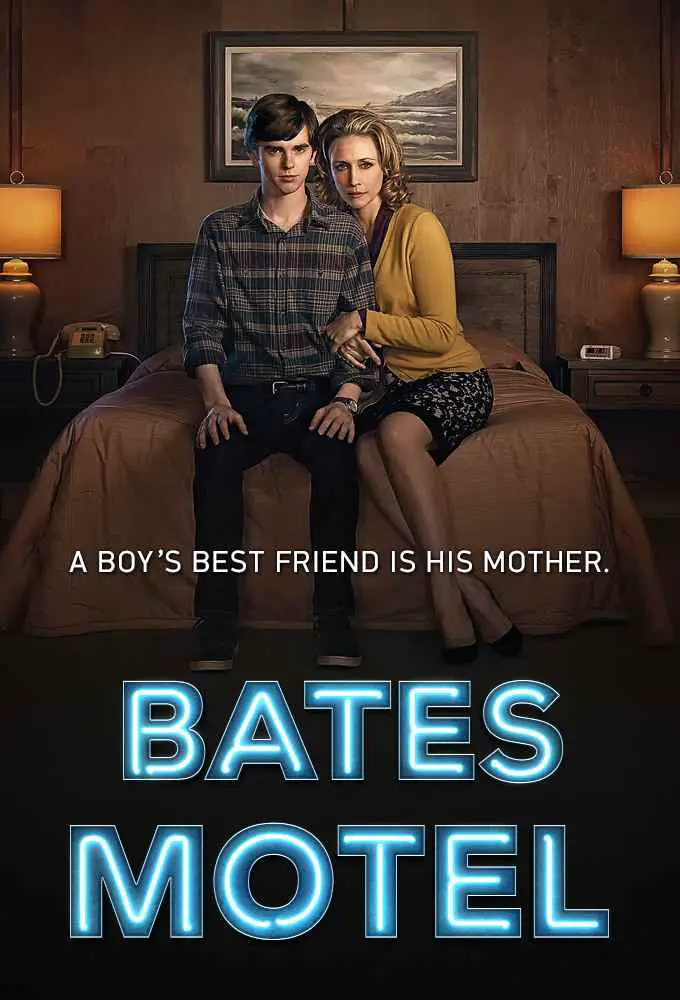Not Quite Horror is back from the dead. After resting for a bit in its kind-of creepy but still-normal-enough-to-pass-as-regular crypt, our biweekly series returns. In each installment, Joey Keogh will argue why a chosen film not generally classified as horror actually exhibits many of the qualities of a great flight flick, and therefore deserves the attention of fans as an example of Not Quite Horror. This week, it’s Cory Finley’s super-stylish, and blackly funny, debut Thoroughbreds.
Thoroughbreds’ title is two-fold. It first refers, at least nominally, to the horse Olivia Cooke’s sociopath slaughters in its wordless opening moments. Taking the film’s wider scope into account, however, the title alludes to Cooke and Anya Taylor-Joy’s immaculately coiffed, but secretly monstrous, teenage girls. They might be well-bred, their lives existing within the confines of an elite gated community in Connecticut, but inside, these two are rotten to the core.
Related: Not Quite Horror: You, Season 1
There’s an overwhelming feeling of encroaching menace in playwright Cory Finley’s assured debut feature, which bleeds into every corner of the expertly-curated frame. The styling is eye-wideningly gorgeous, from Joy’s nautical-themed ensembles (all starched collars and perfectly curled hair) to Cooke’s less structured elegance (messy hair, short summer dresses, a forest-green hunting jacket). When it comes time for Joy’s scheming Lily to commit an act of hideous violence, blood splatters all over her crisp white jumper-dress.

The murder is both the catalyst for Thoroughbreds and its least important plot point. The act itself occurs off-screen, with the audience privy only to the aftermath, which sees Cooke’s Amanda voluntarily passed out on the sofa while Lily covers her in blood to implicate her friend in the crime. Finley builds to the moment for much of the movie, as various elements threaten to sabotage the girls’ end goal. But when it does eventually happen, the first time filmmaker dedicates just a few minutes to the killing.
The (black) heart of his film is the toxic friendship between Lily and Amanda, a society girl looking to off her horrid stepfather and a careless outsider who values nothing about her privileged lifestyle respectively. The two enjoy a level of privilege such that maids swoop in to pick up after them but nobody notices when they’re casually plotting murder in the pool, or by the massive outdoor chessboard (the basis for much of the movie’s marketing, and rightly so — it’s a gorgeously shot, brilliantly constructed sequence).
Only Anton Yelchin’s low-level crim, Tim, smells a rat with these two, agreeing first to take part before legging it when the time comes to actually kill the man. It’s on him much of Thoroughbreds more insidious violence is inflicted, whether it’s via Amanda’s snarky comments (when Tim argues they have no idea where he comes from, she deadpans “Westchester” without missing a beat) or, in one blackly hilarious moment, when he’s in the bathtub with a gaping head wound being instructed to simply wear a hat for a while.

Thoroughbreds is about privilege and the dark obsession of teenage friendships in the same way Heathers, Mean Girls, and Jawbreaker are. Lily sees in Amanda someone who’s willing to take action, while Amanda, understandably, looks at her friend’s massive mansion and fashionable duds with thirsty resentment. Each believes the other is their missing piece. Even though it’s Lily who commits the actual murder, it’s Amanda who takes the fall. And willingly so, understanding her societal role better than even Lily does.
Although Amanda doesn’t crack a smile until the very end of the movie, it’s Lily who proves to be the more monstrous of the two, her true intent hidden beneath a veneer of perfectly-preserved upper class sophistication. Lily’s more malicious side comes out in how she condescends to Tim in the film’s final moments, and in her attempted drugging of Amanda (deep down, she must know her BFF would do anything for her, though, right?). This entitled young lady doesn’t consider others’ feelings not because she feels nothing, like her obnoxious friend, but because she doesn’t have to.
See Also: Not Quite Horror: Destroyer
Finley’s film is a remarkably confident, and sophisticated debut powered by two vanity-free lead performances (Yelchin, in his final role, makes for a sweet, borderline pathetic counterpoint as a man let down by society in every conceivable way). Rather than casting judgement on his characters, the writer-director leaves it to us to decide whether the girls deserve what’s coming to them. He forces us to look inward and ask ourselves whether we’re horrified by what’s happening onscreen, or secretly envious of all the opulence on show. By the film’s end, it’s kind of hard to decide.






